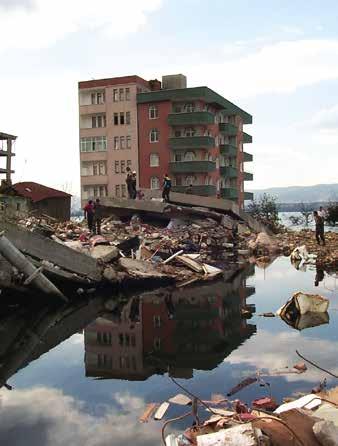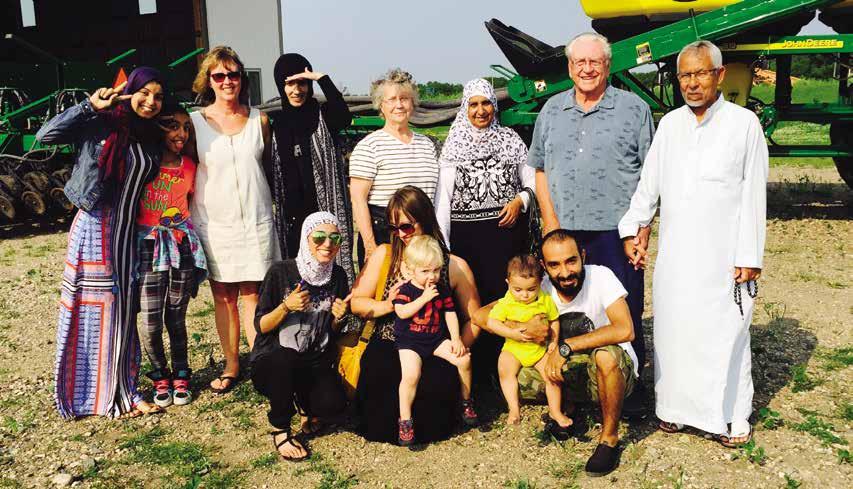
6 minute read
The Purpose of Life
By Bebek Rai
“Wow! Are you serious?” I asked.
Advertisement
“Yes, I’m serious. We’re going to the United States,” he happily said.
“I can’t believe it. Don’t leave me alone here,” I said. I did not want my beloved friend to leave me. I didn’t know if I would ever see him again.
“I have to go. My parents won’t let me live here by myself,” he replied.
“Mo timilai samjhiney chu,” I said. I started wondering if my family was planning to go too, so I talked to my parents about it. When I asked, they didn’t know if we were going to America or not. After a few days, they heard news that we could leave the refugee camp. We went to the office to fill out the immigration forms that were needed. We only had to wait for the departure date. We were so happy.
My parents came from Bhutan. It is the beautiful country with mountains, where many people used to live before they were forced to leave by the government. The people ended up in refugee camps on the border of Nepal and Bhutan. In the refugee camp, my family and I lived in a hut that was made of bamboo. My friends and I had to walk to the small school. Teachers used to beat us if we did not do our homework. They used to beat the students with sticks or by hand, and sometimes they would even kick us too. I felt angry when the teachers beat me. In the camp, we used to get water from the tank three times a day. We got vegetables, rice, and oil from the UN Refugee Agency. Most parents had to work more than nine hours per day. We didn’t have much money to buy school uniforms, which were required for school in the camp. If we didn’t wear a uniform, our principal beat us, and they would call our parents to see why we were not wearing uniforms.
One day, I didn’t wear my uniform, so the principal called my parents.
“Why isn’t he wearing his uniform?” the principal asked.
“We didn’t have any money to buy one,” my parents replied.
“Why didn’t you tell us that before?” the principal asked.
“We were going to let you know,” my parents said.
“You should have told us about your problem,” the principal said. From that day on, they didn’t beat me because of the uniform.
In 2010, I heard about America. We used to think that the whole North America continent was the United States, and we didn’t know it was different. My parents didn’t want to come to America at first, because they didn’t want to go away from their motherland.
“Wherever we go, we have to work for ourselves. We aren’t going to America,” my parents told me. They thought life in Nepal was just fine. They also thought it was easy to survive in Nepal.
“America is better than Nepal, and we should go there,” I said to them.
They didn’t listen to me. I started to think that they didn’t want to go to the United States. I was so tired of convincing them to go to America. When more people started moving to America from Nepal, then my parents started to come around. They realized that everyone was thinking about their futures. Finally, they said, “Let’s go. We are ready to go to America.”
I was so happy! We soon went to the office of immigration to sign more forms. In between 2011 and 2012, we finished all the work that we were supposed to do for immigration. We finally got the date to leave Nepal.
On our final day, we went to the airport in Kathmandu. I was scared to leave Nepal because I had never been away from the camp. I didn’t know where I was going. We did not have a map for directions, and I felt uncomfortable sitting by strangers on the plane. I felt like I was in a dream because I had never seen an airplane before. I felt unhappy leaving my country. My heart started to cry because I was already missing my friends and family. I felt miserable leaving them. On the flight, my brain didn’t seem like it was working. Maybe, I was missing my homeland too much. I didn’t like the food on the airplane. I didn’t want to eat the food, but I had to because I was so hungry. My siblings are younger than me, and they were happy to be flying on an airplane, but they didn’t understand that we were leaving our country and never going back again. I didn’t want them to know I was sad because I knew they would feel sad, too.
Finally, we got to Paris, France. We were about to get on our flight from Paris when we heard something was wrong with the airplane. We got stuck in Paris and had to stay there for one night. In the morning, we went to the airport for our flight and headed to Chicago. Finally, we got to the Chicago airport, and we were confused again. We didn’t know what plane we had to take. We talked to one guy who worked at the airport because we were confused. We didn’t know what time weshould get on the airplane. He helped us get to our gate and even to buy some food to eat at the airport. He did everything he could for us. Some people are so kind!
On August 8, 2012, we arrived in Fargo, North Dakota. When we got off the plane, our Nepali case manager was waiting for us.
“Hello! Are you guys from Nepal?” she asked.
“Yeah! We are from Nepal,” I replied.
“Welcome to Fargo! How was your journey?” she asked.
“It was very nice, and we are glad to be here,” I replied.
“We have arranged everything to get you started here,” she said.
“Thank you, sir. That will help us a lot,” I replied.
She gave us some money to buy the rest of the items and food that we needed for our apartment. She explained some basic cultural differences to us. The interpreter translated for us when she was talking. She then checked out all the papers that we had with us.
“You guys can go to your apartment now,” she said. All of my relatives, who came before us, were waiting there with a car to take us home. We drove from the airport to our grandmother’s house. On the way to her apartment, we relaxed a little bit, but were still confused about everything.
“Why don’t many people in Nepal have cars, like here?” I asked my uncle.
“We didn’t see a lot of cars in Nepal because people were poor,” my uncle said. I hated feeling confused and disoriented. I wanted to know everything about my new home.
“Can I get more information about America?” I asked.
“Timilai thaha huneycha pachadi,” my uncle replied.
I learned a lot when I made my journey to the United States. Whenever we got confused or when we didn’t know something, we asked for help. Sometimes people don’t treat refugees with kindness, or people would neglect us, show fake love, or betray us. I have experienced all these problems as a refugee, but I still keep trying to see the good in people. I am thankful for everyone who really helped me. Because of their help, my problems were solved and my journey was successful.
NEPALI LANGUAGE GLOSSARY
Mo timilai samjhiney chu. - I’m going to miss you.
Timilai thaha huneycha pachadi. - You’ll get it later on.
BEBEK RAI was born in the Pathri Refugee Camp in Nepal. In 2012, he came to the United States from Nepal with his whole family. He has five members in his family. He is a student at Fargo South High School. He’s a junior and is seventeen years old. His favorite classes are English and math. He likes to sing songs whenever he has free time. He wants to be a singer in the future.










